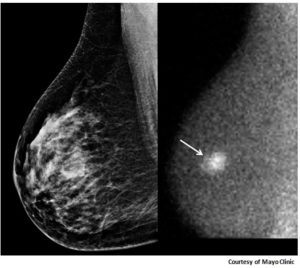Do you have a strong family history of breast cancer or ovarian cancer? Are you thinking of doing a BRCA genetic test to find out if your genes put you at increased risk for those cancers? Would you visit your doctor or healthcare provider to get tested, or would you do as an increasing number of people are doing…order your own test from a direct to consumer lab?
These are not questions I’ve asked hundreds of my patients. It’s also a question that I’ve had to discuss with my wife. In her family, many of the women died before the age of 50 of ovarian cancer…aunts, great aunts, grandmother, etc. If you are a woman in a family with this type of cancer history, you would likely be worrying about your own risk.

That’s why my wife and I had this discussion. She was one of the early women tested for the BRCA or BReast CAncer gene. In addition to myself, there were discussions with several other doctors and a genetic counselor.
And now you can do that without going to the doctor or getting any genetic counseling.
The FDA recently approved a direct-to-consumer test for three specific BRCA1/BRCA2 mutations that are available in the BRCA genetic test at 23andMe. Just spit into a container and mail it to the lab. Five or so weeks later your test result is available.
If the BRCA genetic test is positive, it indicates you have an increased risk for breast and ovarian cancer. The test is particularly helpful if you are of Ashkenazi (about 1 in 40 people) or Eastern European Jewish decent. However, these genes can also be positive in people from Iceland and other areas around the Mediterranean. They also can be present in African Americans, and due to intermarriage, potentially anyone (about 1 in 400 people in the US).

The BRCA genetic test is really important for people at risk for breast and ovarian cancer.
But how effective is this new BRCA genetic test?
It the BRCA genetic test is positive, the results are probably accurate. I’ll discuss this more in a moment.
But what if it the BRCA genetic test is negative?
That’s a more difficult question to answer.
Why? Because although the direct-to-consumer BRCA genetic test does measure whether or not you have one of the three BRCA1/BRCA2 mutations, there are more than 1,000 known mutations and only three of those are measured.
So if your test comes back negative, you may still be positive for one of the other 997+ BRCA mutations. And there are other gene mutations besides the BRCA that can increase your risk for breast cancer (including mutations in the PALB2, TP53, PTEN, and the BRIP1 genes) and ovarian cancer such as PTEN (PTEN tumor hamartoma syndrome), STK11 (Peutz-Jeghers syndrome), MUTYH (MUTYH-asociated polyposis, and the many genes that can cause hereditary nonpolyposis colon cancer (MLH1, MLH3, MSH2, MSH6, TGFBR2, PMS1, and PMS2).
And what if your test is positive for one of the three mutations that are diagnosed?
Then it would be very important for you to talk with either a genetic counselor or someone who is very knowledgeable about the test and what it means for you.
For instance, women who are positive for the BRCA gene may need surgery to remove their ovaries and tubes or even their breasts to lower their risk of cancer. And for those who have not completed their childbearing, they may need to freeze eggs if they are single, or freeze embryos if they have a partner. When, where, how? And you also have to know how to treat the symptoms of menopause that will begin as soon as the ovaries are removed. I discuss that in great detail in my best selling book The Estrogen Fix.
And even if you do test positive for the BRCA gene mutation, that doesn’t mean you’ll get cancer. It means you are at increased risk for getting cancer.
In other words, knowing the test is positive is the first step. Then comes follow up.
Eventually direct to consumer genetic testing will be more complete. But for the moment, realize that all tests are not equal. And even if they do come back positive, that is just the first step in a journey to being proactive to protect both your fertility, and your health, and your life.
For more information on women’s wellness, perimenopause and menopause visit DrMache.com.
